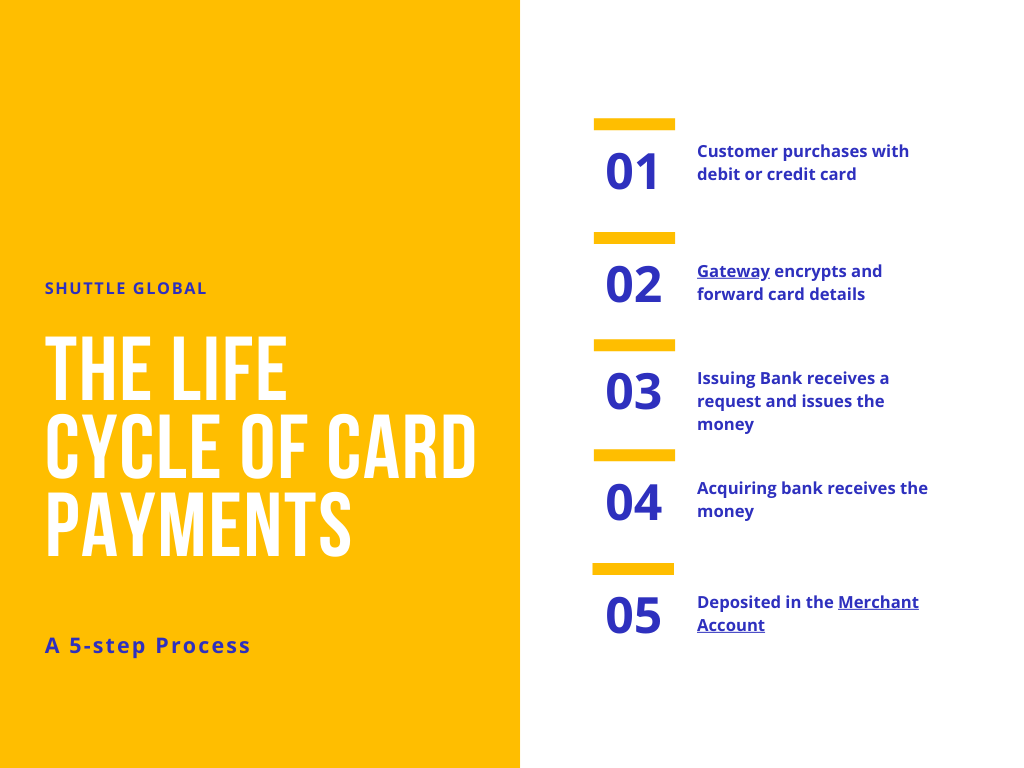The payments space today
The Payment processing of credit and debit cards has been around for a number of decades now, with ever-increasing consumer confidence, one benefit of the pandemic we guess, the enabling of payment processing has changed for the better. With companies like Stripe, Checkout.com and PayPal offering all-in-one solution the choice for the merchants and software vendors is not only greater but potentially better for them.
With the increase in online transactions, making payments simple, transparent and effective is becoming a primary concern for all involved. Due to that shift, there is substantial unrealized potential for merchants and payment processors alike. We see that independent payment service processors, or PSPs, are moving away from providing exclusively gateway services, and towards acting as acquirers. Not to mention even newer players like Revolut (new banking provider) offering payment services.
What’s changed?
Historically you had to have a merchant account and a payment gateway to accept cards payments, now you’re shielded from need to setup those things separately if you use an all-in-one solution.
This wider integration of payment services provides benefits for merchants, who would have access to bundled services and increased payment speeds.
For merchants, this is an opportunity to save money on payment fees and quality of payments with a PSP that offer both gateway and acquiring services. The question is then is an all-in-one solution or separate service providers the best way to meet your payment needs?
The Acquirer / Merchant account provider
Looking from the point of purchase, the acquirer plays the critical role of holding the merchant account and receiving payments from a customer’s bank. This comes with its own range of fees and terms, however, is typically defined by the specific features and rates desired by merchants. Different PSPs will often base their rates on merchant transaction volume, although merchants can negotiate bespoke agreements with their PSPs. Since the bigger margins are made by the acquirers this is typically where partnership deals are done, something that isn’t really possible with incumbent, legacy players.
Another deciding factor is the service for seasonal or other cyclical business models. Merchants might experience challenges communicating with larger PSPs, whereas a smaller PSP would be able to provide more specialized solutions.
The Payment Gateway
As the name suggests the payment gateway is the door to accepting a payment and passing that payment instruction to the merchant account and in turn the customer’s issuing bank. A gateway will provide a form for the card/payment data to be entered. The cost of using a gateway tends to be low, since it’s role, although imperative, is less costly. They might charge a fixed fee or a percentage fee but that fee is on top of the merchant account (payment processing) fees.
The deciding factors for Gateways tend to fall along the same line for acquirers, with a core focus on customization and user control. Since there are PSPs that offer an all-in-one solution, they are an alternative to a gateway, acquirer partnership solution; with some all-in-one solutions bundling the gateway for free
Saving Money with your PSP
The trick to saving money with your PSP is to understand your needs and adjust accordingly. A large number of merchants simply don’t know what options are out there, so they stay with large players, not knowing the opportunities offered by smaller competitors. Outside of simple education, actively communicating with PSPs will shine a light on options that aren’t on their listed pages. A simple conversation could save you money every year.
As the payments industry modernizes, we see some PSPs offering both acquiring and gateway services. This provides the advantage of centralized services for merchants, although, this can mean less flexibility than choosing two distinct service providers.
When choosing a PSP, a merchant should know what they want to prioritize, be that customization/integration, rates or centralization. Merchants might see the perceived cost of overall services increase with the inclusion of gateway options. In reality, it eliminates the cost for an external gateway service and can in fact save money!
Comparing PSPs with Shuttle
If you’re looking to find a better or cheaper service then we can consider your needs and help you compare the market for free.



